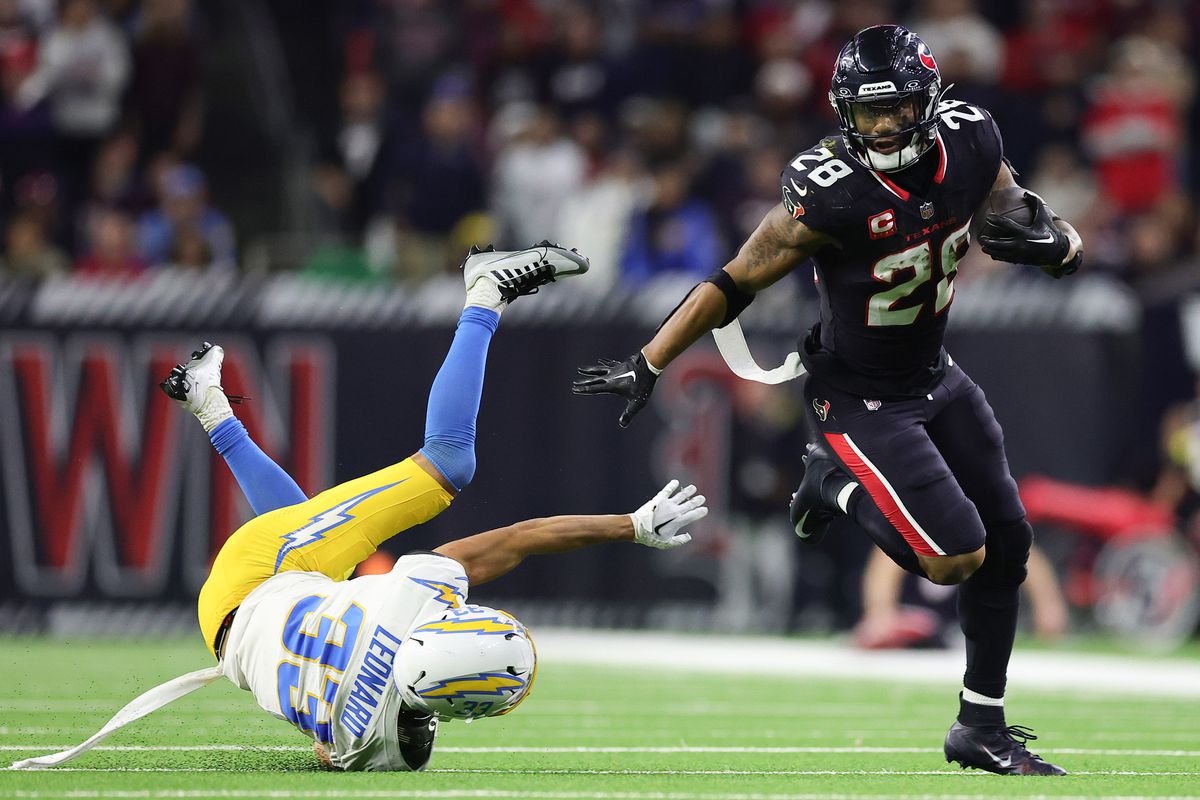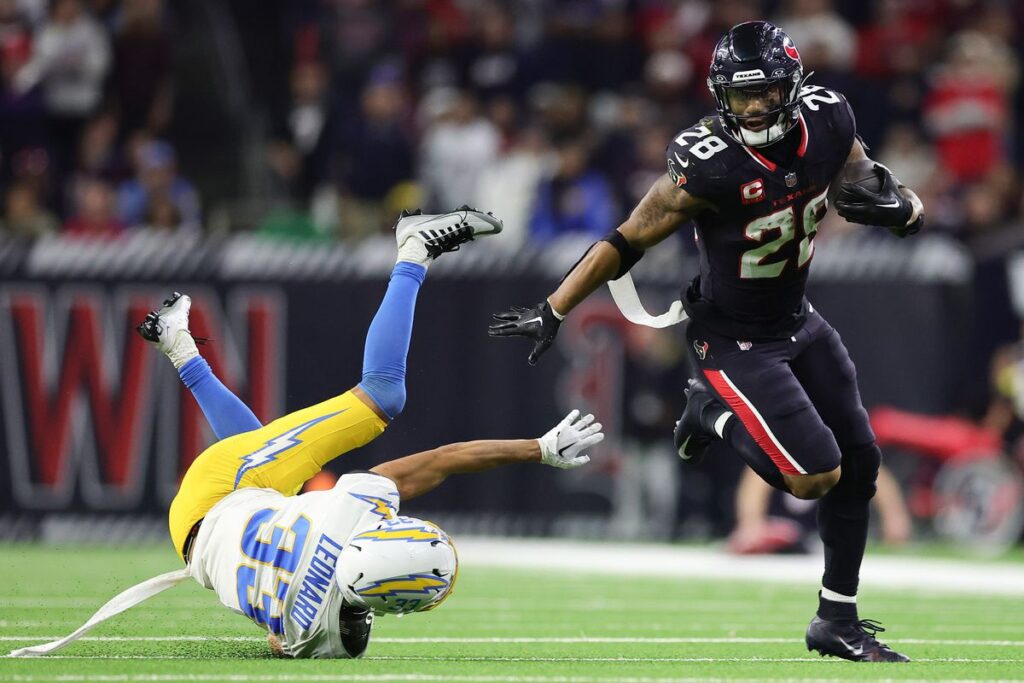The Houston Texans vs. Los Angeles Chargers AFC Wild Card game showcased three fundamental football concepts: ground control, defensive turnovers, and quarterback effectiveness. Houston, led by the operational effectiveness of C.J. Stroud, held Los Angeles at 12 points after scoring 32 points with a systematic offensive attack and securing four defensive takeaways. Statistical measurements provide light on factors like turnover margin, red zone conversion, and time of possession, offering frameworks for postgame analysis supported by data. These results serve as predictors of future playoff success and guide coaching strategy and draft preparation. For detailed measurements and detailed breakdowns of team dynamics, see the following sections.

The Houston Texans and Los Angeles Chargers’ AFC Wild Card matchup in recent days turned NRG Stadium into a venue where before predictions were overshadowed by data. Fans held their breath as the Texans crushed the Chargers 32–12 on January 11, 2025, but the final score merely suggests a larger story written on the stat sheet. We find a story full of redemption, revealed flaws, and moments that will reverberate across both teams by closely examining the player statistics from the Texans vs. Chargers game.
Like a swarm of bees working in tight formation, this game reminded us that playoff legends are created in the little things: the defense snatching every error, the quarterback’s calculated calm, and the persistence of a ground attack. Football fans tend to obsess about highlight-reel moments. When the figures are broken down, it is clear that this competition not only exceeded expectations but also imparted valuable lessons about perseverance, flexibility, and the price of lost chances.
| Attribute | Texans Top Performer | Chargers Top Performer |
| Name | C.J. Stroud | Justin Herbert |
| Position | Quarterback | Quarterback |
| Birth Date & Age | Oct 3, 2001 (age 23) | Mar 10, 1998 (age 26) |
| Height / Weight | 6’3″, 215 lbs | 6’6″, 236 lbs |
| College | Ohio State | Oregon |
| Draft/Year | 1st Rd (2023 NFL Draft) | 1st Rd (2020 NFL Draft) |
| Comp/Att (passing) | 22/33 | 14/32 |
| Passing Yards | 282 | 242 |
| Touchdowns/Interceptions | 1 TD, 1 INT | 1 TD, 4 INTs |
| QBR | 86.5 | 38.1 |
| Key Performance Link | NFL.com Player Stats | NFL.com Player Stats |
Ten Ideas That Made the Game Come to Life
1. Stroud Remains Firm While Herbert Flounders: Two Quarterbacks, Differing Destinies
Houston’s C.J. Stroud played with a very composed demeanor, finding open receivers and managing the pace in a game that was predicted to feature quarterback mastery. In contrast, Justin Herbert threw a career-high four interceptions before collapsing under the playoff lights. The energy of the whole game was shaped by the noticeable contrast in composure.
2. Only One Ground Game Was Played: The Texans’ Rushing Ability Outperforms the Chargers’ Expectations
The Texans benefited greatly from running the ball, as Joe Mixon amassed 106 yards while using his dancer’s balance to cut between potential tacklers. The Chargers’ ground assault never found its groove, and J.K. Dobbins ended up slip-slipping to only 26 yards. To balanced football supporters, this discrepancy was eerily reminiscent of a one-sided relay.
3. A lone charger light shines on McConkey in the darkness.
Even though Ladd McConkey’s 197-yard, one-touchdown burst was quite spectacular, the Chargers’ offensive tempest turned his effort into a flash of genius. In spite of his valor, the supporting cast fell short, highlighting how even the most impressive efforts may be undone in team sports when there is no backup.
4. The Defensive Masterclass of the Texans: Making History Under Pressure
The Texans defense showed incredible opportunism by catching four interceptions and setting an NFL playoff record with a defensive two-point convert. Every defender understood their mission, which was to disrupt Herbert and make every error seem expensive, much like a swarm closing ranks. This performance will continue to be significant for some time to come.
5. Turnover Issues: The Chargers Learn a Hard, Statistical Lesson
In postseason football, mistakes are seldom overlooked, and the Texans’ ability to capitalize on turnovers was crucial. With four interceptions, Herbert’s disastrous performance has already become part of Chargers history as a lesson that coaches will probably analyze for years to come.
6. Strategic Control: The Texans’ blueprint was balance
Houston showed a very effective strategy by juggling pass and run, controlling the clock for thirty-four minutes, and scoring on more than one-third of their third-downs. Their performance in the red zone was very creative and provided a model for success in the playoffs.
7. Nico Collins: The Underappreciated Hero
Nico Collins emerged from the background with seven catches for 122 yards and a score, coming through when Houston most needed him. For Texans supporters, his rise gives an already potent offensive a fascinating, multifaceted thread.
8. Red-Zone Facts: A Quantified Fourth-Quarter Collapse
When compared to the Texans’ brilliant late-game play, the Chargers’ inability to score touchdowns in the red zone was evident. Real-time player stat reviews made it very evident where one squad struggled and the other succeeded, serving as a reminder that when it comes down to it, the basics still matter.
9. Strategic Insights from the Data: Lessons for Every Playbook
The league’s front offices will be studying the footage of this game because Houston’s strategy—being fiercely disciplined and adaptable—worked very well. Here are some very helpful insights for analytics departments, who are always searching for advantages.
10. Sad Conclusions and Hopeful Starts: Statistics as a Mirror
This loss marked the end of the Chargers’ season, which had been full of promise and was marred by squandered chances on every stat line. These numbers are a starting point for the Texans—proof that a squad can succeed far into January with perseverance, flexibility, and accuracy.
The Texans vs. Chargers game player data are a potent reminder of why details really important as statistical analysis continues to transform how we watch sports. These figures did more than just show a victory or defeat; they gave teams an honest assessment and gave supporters an opportunity to revisit heartbreaking and brilliant strategic moments. The Chargers are forced to reassess and rebuild, maybe stronger, certainly wiser, and now unquestionably determined, while the Texans march on with optimism and analytical evidence of their changing fate.
